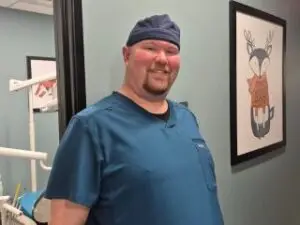 On Jan. 8, the United States Senate passed legislation, known as the Veterinary Medicine Mobility Act, that would allow veterinarians to transport controlled drugs and medications to animal patients at clients’ homes and on farms.1 While the bill must still pass through the House of Representatives, Senate approval represents the clearing of a major hurdle in an effort to make it easier for vets to practice their trade all across the country. It was sponsored by Sen. Jerry Moran, R-Kan., and Angus King, I-Maine. The bill represents an amendment to the Controlled Substances Act, and it would close a loophole in the law that bars practitioners from dispensing certain drugs outside of their home or registered office. That loophole criminalizes common activities that veterinarians must engage in, especially in rural areas of the country.
On Jan. 8, the United States Senate passed legislation, known as the Veterinary Medicine Mobility Act, that would allow veterinarians to transport controlled drugs and medications to animal patients at clients’ homes and on farms.1 While the bill must still pass through the House of Representatives, Senate approval represents the clearing of a major hurdle in an effort to make it easier for vets to practice their trade all across the country. It was sponsored by Sen. Jerry Moran, R-Kan., and Angus King, I-Maine. The bill represents an amendment to the Controlled Substances Act, and it would close a loophole in the law that bars practitioners from dispensing certain drugs outside of their home or registered office. That loophole criminalizes common activities that veterinarians must engage in, especially in rural areas of the country.
History and future of the legislation
The Controlled Substances Act (CSA) was first signed into law by President Richard Nixon in 1970. While it was intended to help curb the explosion of drug use in America at the time, nearly 40 years later the U.S. Drug Enforcement Agency (DEA) decided that the law extended to veterinarians, informing them in 2009 that they would no longer be able to transport drugs to their patients.2 Since that time, various organizations and lobbying groups connected with veterinarians have been working to pass legislation that would allow an exclusion for animal doctors, freeing them up to practice medicine as they had for decades before the DEA announced its interpretation of the law. Now that the bill will make its way to the House, there is still some question as to whether it will pass through that chamber, as the House is considered more conservative and anti-drug than the Senate. However, the American Veterinary Medical Association (AVMA) believes the Veterinary Medicine Mobility Act is likely to become law. “With nearly 150 cosponsors in the U.S. House and the nation’s only two elected veterinarians serving in Congress championing the bill, we believe the Veterinary Medicine Mobility Act has a good chance of moving forward in the House of Representatives,” Mark Lutschaunig, governmental relations director of the AVMA, said in a statement.
Travel restrictions are particularly harmful to veterinarians
Unlike many physicians, veterinarians and their certified veterinary technicians often have to make house calls. A large percentage of veterinary practices are either located in or serve rural communities, making travel between clinics and farms a necessity for most people in the profession. That means transporting controlled substances is essential to a veterinary professional’s ability to execute their responsibilities. There was an immediate uproar when the DEA announced that the CSA would apply to veterinarians, and the relatively swift action to change the law is a sign that lawmakers were sensitive to the needs of veterinarians and their clients and patients. In the House, the legislation is backed by the only two veterinarians in Congress – Rep. Kurt Schrader, D-Ore., and Rep. Ted Yoho, R-Fla.3 Both of them have firsthand experience with how important it is for veterinarians to be able to transport these drugs to their patients. “As a large animal veterinarian, I can tell you that the practice of veterinary medicine doesn’t always take place in an office,” Yoho said in a statement. “This legislation allows the flexibility needed for veterinarians to care for their patients wherever the call may be. I look forward to working with Representative Schrader on moving this commonsense legislation with the same broad support in the House of Representatives.”
Bill’s impact on veterinary professionals
If the bill ends up getting passed by the House, veterinary professionals will be able to return to practicing medicine in the manner to which they had become accustomed over the years. The 2009 reinterpretation of the CSA became a serious impediment to the way veterinary professionals did their jobs. Fortunately, as it applied to veterinary professionals, the CSA has not been strenuously enforced over the past five years. Veterinarians who have been found in violation of the law have been issued warning letters, and there hasn’t been a single prosecution connected with violations of the law as it applies to veterinarians. Nonetheless, a cloud of fear had settled over many veterinarians who were unsure how the law was being enforced and whether it would be applied to them if they tried to transport drugs to patients.4 That fear would be removed if the House manages to pass this legislation, which would then go into effect immediately. Veterinary professionals, or those interested in pursuing a career in veterinary medicine, should follow the law’s progress in the House, as it will have a direct application to the way they practice their current or future career. 1 News Release, “Senate Passes Veterinary Medicine Mobility Act,” Office of U.S. Sen. Jerry Moran, Jan. 9, 2014. http://www.agweb.com/article/senate_passes_veterinary_medicine_mobility_act_NAA_News_Release/ 2 Niedziela, Ken, “Senate Passes Veterinary Drug Amendment,” Veterinary Practice News, Jan. 9, 2014. http://www.veterinarypracticenews.com/vet-breaking-news/2014/01/09/senate-passes-veterinary-drug-amendment.aspx 3 Scheidegger, Julie, “Veterinary Medicine Mobility Act Passes Senate,” DVM360.com, Jan. 10, 2014. http://veterinarynews.dvm360.com/dvm/Veterinary+news/Veterinary-Medicine-Mobility-Act-passes-Senate/ArticleStandard/Article/detail/832503?contextCategoryId=378 4 Staff, “Senate Approves Vet Medicine Mobility Law,” Farm Futures, Jan. 14, 2014. http://farmfutures.com/story-senate-approves-vet-medicine-mobility-bill-0-107277



